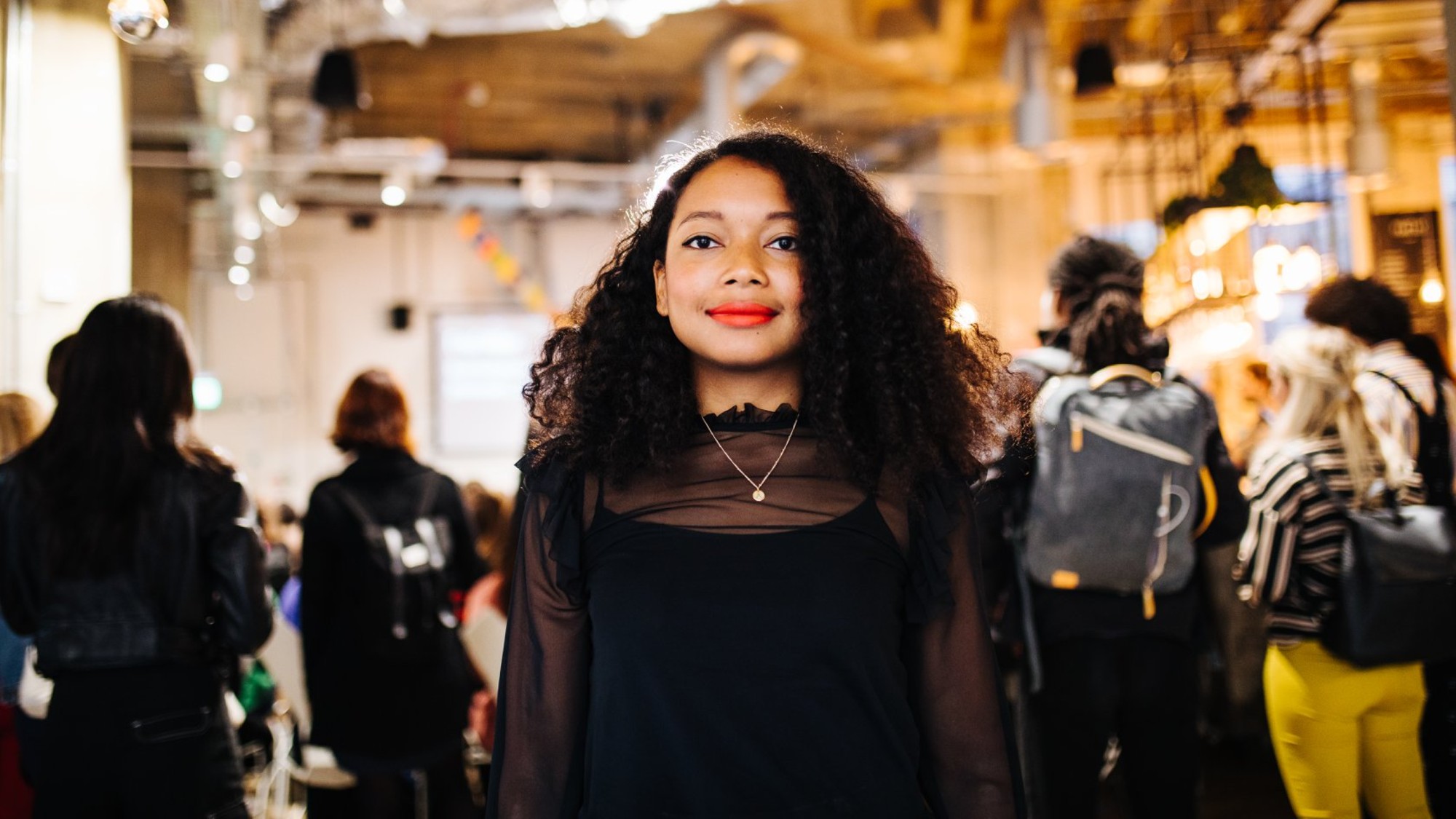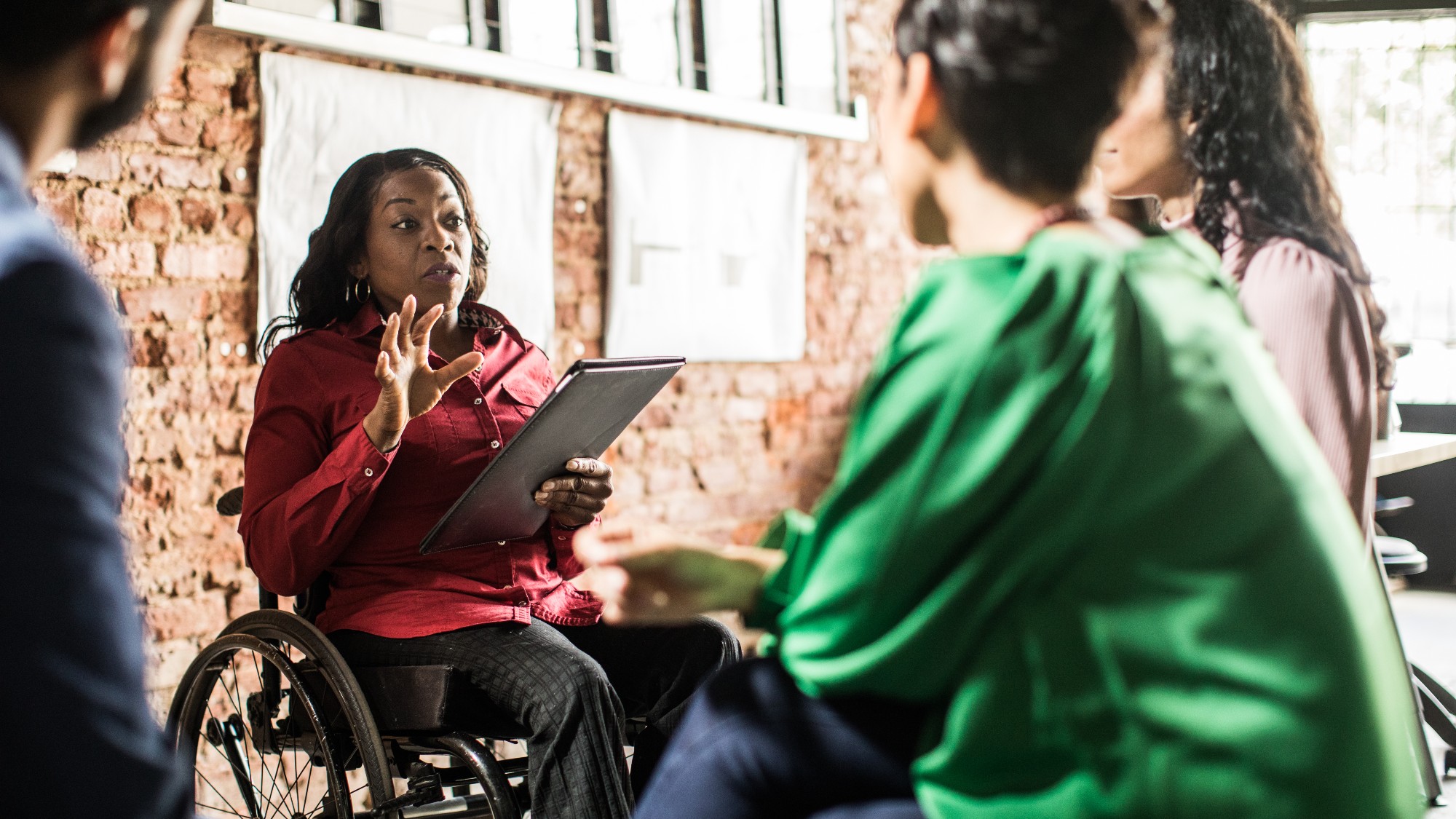“We have been risk averse about inclusion for too long”: Why performative activism in the workplace must go
Countless corporations may have pledged to take a more active stance on inclusion in the months following last summer's BLM protests, but many Black and ‘ethnic minority’ professionals say efforts towards improving diversity in their workplace have since fizzled out. Abadesi Osunsade, founder and CEO of Hustle Crew, tells us how companies can ensure their anti-racism work is actually affecting change


Countless corporations may have pledged to take a more active stance on inclusion in the months following last summer's BLM protests, but many Black and ‘ethnic minority’ professionals say efforts towards improving diversity in their workplace have since fizzled out. Abadesi Osunsade, founder and CEO of Hustle Crew, tells us how companies can ensure their anti-racism work is actually affecting change
It’s been over a year since the Black Lives Matter protests exposed how pernicious racism is in the workplace – as employees came forward to share their stories of discrimination, and companies across the globe were forced to apologise for their past behaviour, and promise to affect lasting change for the future.
From the CEO of JP Morgan Chase taking the knee, to Facebook announcing plans to increase the number of Black people in leadership positions by 30 percent in the next five years, some of the world’s largest companies pledged to transform their workforce through Diversity, Equity and Inclusion (DEI) initiatives after the events of summer 2020.
But while slick PR promises and black squares on social media abounded, how much change has actually been implemented in the year following the murder of George Floyd?
Research released in February by networking group People Like Us and Censuswide found that 57 percent of Black and ‘ethnic minority’ professionals thought the momentum towards improving diversity in their workplace had stalled in the months following the movement. Coupled with the U.K. Government’s incendiary Race Report claim that the “UK is not deliberately rigged against ethnic minorities”, the surge in activism prompted by last summer's protests has, for many corporations, petered out.
"Representation is one way to hold companies accountable," says Abadesi Osunsade, founder and CEO of Hustle Crew: the diversity consultancy on a mission to make the tech world more inclusive.
"When you look at the demographics of the leadership team on the company website, or glance at who makes up the staff when on LinkedIn – do you see a real commitment to diversify the workforce? Look for companies who are being upfront about the journey, and openly sharing news on the actions they are taking to improve."
Celebrity news, beauty, fashion advice, and fascinating features, delivered straight to your inbox!
Along with her role at Hustle Crew, Abadesi is the VP global community and belonging at Brandwatch, and co-host of the whip-smart Techish podcast. Here, she tells us how companies (and employees) can ensure their anti-racism work isn't just all for show.
How to ensure workplace activism is effective, not performative

Draft in the experts – and listen to them
"Companies like Hustle Crew exist to teach leaders and employees how to make more equitable decisions. This work is what learning and development budgets are for," says Abadesi. The past year saw many businesses consult with organisations like Hustle Crew in a bid to make their workforce more inclusive – but they must actively listen to them in order to affect change.
Employee resource groups – or ERGs – are also an effective method of fostering a more inclusive workforce, says Abadesi. But employers have their part to play in supporting them. "Some employers are now paying leaders of employee resource groups extra cash on top of their compensation to reward their time and efforts."
Allow your employees (and colleagues) to speak up
"From the burden of childcare and homeschooling, to the impact of Covid on Black and Brown communities, we see that the experiences of individuals in marginalised groups have been tumultuous and traumatic," says Abadesi.
So it's important that workplaces don't chose to ignore the lived experiences of marginalised colleagues. "Research shows there's a positive correlation between productivity and psychological safety," she adds. "This shows that it's vital for employers to create space for conversations to happen that allow folks to speak beyond the transactions of their role, and share what they are feeling and going through."
Cultivate a culture of allyship
"If one man's trash is another man's treasure, then one man's joke is another woman's trauma," says Abadesi, who admits that her own experiences of feeling actively excluded in the workplace diverted her attention away from her job, and towards the actions she could take to fit in with colleagues. "That is not a productive or healthy way to build a career."
"It's so important for bosses to model behaviour. If you are someone who is still using problematic language and passing it off as banter – how can you expect your team to do any better? Be the change you want to see by learning about your identity and the privileges it gains. Learn your blind spots, work on being more compassionate and empathetic. Learn to be curious about other lived experiences. By doing this, you'll soon find others copying you."
Embrace discomfort
"Tech companies have to learn to embrace the discomfort of radical experiments. From recruitment quotas to immersive training – to accelerate the pace of change when it comes to inclusion leaders must be willing to take bold steps into the unknown with no guarantees of perfect execution or success. We have been risk averse about inclusion for too long and that's why the problem persists."
Kate McCusker is a freelance writer at Marie Claire UK, having joined the team in 2019. She studied fashion journalism at Central Saint Martins, and her byline has also appeared in Dezeen, British Vogue, The Times and woman&home. In no particular order, her big loves are: design, good fiction, bad reality shows and the risible interiors of celebrity houses.
